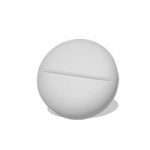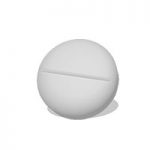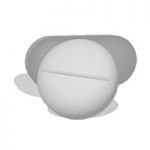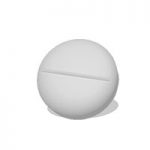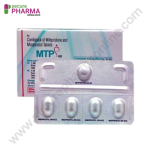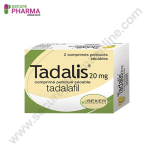Population-based studies show that women are more probably develops Alzheimer’s disease than men, but the reason for this paradox is not certain. However, current studies show that during menopause, antibody levels of FSH increase sharply, binding to relevant FSH receptors on neurons and activating the C / EBPβ / AEP pathway. This leads to the pathology of Aβ and tau, leading to the development of Alzheimer’s disease.
Researchers have used various methods to determine this conclusion. Testing ovariectomized rats, they blocked FSH using anti-FSH antibody therapy and inactivated the C / EBPβ / AEP nerve tract. They also neglected the expression of FSH receptor (FSHR) in neurons, abolishing the wrap of the follicle-stimulating hormone to follicle-stimulating hormone receptor in the hippocampus. Both methods reduced the condition and cognitive abnormality. In inclusion, the breakdown of C / EBPβ in the Alzheimer’s disease rat model reduced the pathology of AD. In addition to working with female rats, researchers vaccinated FSH into a male rat and found that FSH promotes the condition of AD. All of these results suggest that elevated FSH in postmenopausal neurons attaches to FSHR and stimulates the C / EBPβ / AEP pathway, which is very predominant in inducing AD immunology.
The worst factor in developing Alzheimer’s disease is your age the risk of enlarging it increases as you get older. Scientists believe that this may be a simple reason why women are more likely to get sick, as women are evaluated to live many years than men. Men, in particular, are more probably to pass away of heart disease in their 50 to 60 age.
However, regardless of a lifetime, several factors can put women in high danger than men. The illness is acknowledged as an unusual part of elderliness. Along with Alzheimer’s disease, predominantly physical and mental health can also be affected.
Therefore, scientists have surveyed the bodily and mental health of women and men to identify hidden risk parts. Ladies are most probably having depression, and that may increase the risk of dementia, as per a lot of research, including a 2017 study of mental health in participants over the age of 28.
In that, it is predicted as women workout less than men. This is a reason associated with a high incidence of Alzheimer’s disease. However, the consequences of workouts appear to reduce the risk of getting sick in both men and women. Another research concludes that workouts may help delay the onset of Alzheimer’s disease. But while comparing the difference between men and women, the result is not always so evident. RNA and hormones are also equally important.
The biggest biological danger part for Alzheimer’s disease arrives from a gene named APOE4. This is associated with increased risk for both women and men. However, having this APOE4 can be even worse for women — a 2014 research detected that women contestants were even more in danger of emerging Alzheimer’s than men because of this gene.
Ladies also go through hormonal wavering throughout menopause and explain why they can combine with genes and why their minds are at risk of Alzheimer’s disease. Around the age of 40 or 50, women’s levels of estrogen, progesterone, and testosterone begin to decline. Often, these changes result in women experiencing hot flashes and stress, but the consequences of the changes can also have permanent effects on the brain.
Present-day therapies for dementia are insufficient to slow the development of the disease, and there is no cure except for dementia associated with usual pressure hydrocephalus (NPH). Therefore, identifying changeable risk parts has been a major focus of many studies. Disastrously, age and gender, the two most powerful determinants of dementia, do not come under these criteria. In addition, gender and gender-related factors interconnect with age throughout improvement to change the risk of dementia. Starting in the womb, the brain is sensually dimorphic affected. This develops risk and durability to lifelong health consequences.
Scientists have been investigating whether hormone treatment can be a remedy to prevent Alzheimer’s disease in postmenopausal ladies since the 1990s. A survey in 1996 tried out hormone replacing treatment in women and found that estrogen tablets reduced the incidence of Alzheimer’s disease when given premenopausal. Another scientist has considered the consequences of Alzheimer’s disease on women for about 20 years. She states that Alzheimer’s disease research does not necessarily focus especially on women, even though it accounts for two-thirds of patients.
A 2005 study showed women’s 4-year response to estrogen and progesterone. And in 2014, researchers performed an indiscriminate hormone treatment trial in women. In this report, they analyze the outcome of hormone treatment in ladies from different circumstances to check if the female brain responds to hormone treatment, regardless of fitness, wealth, or educational status. In many cases, hormones are found to be productive for ladies. But at the same time, it showed that the regularity of treatment was of utmost importance.
FAQ:
Why are women more likely to have Alzheimer’s disease?
Women have an intense immune system when compared to men. As an element of their intense immune system, women can have a large number of amyloid plaques than men. This theory briefs you on the reason behind how women are eventually at higher risk of evolving Alzheimer’s disease, as they are having a large number of amyloid plaques.
What are the three main reasons for Alzheimer’s disease?
Neurons are disfigured, lose connectivity, and at last, expire. Researchers believe that Alzheimer’s disease in various people is provoked by a sequence of hereditary, lifestyle, and ecological factors that influence the brain extra.
How is Alzheimer’s disease prevented?
Preventing Alzheimer’s disease Quit smoking, minimizing alcohol consumption, and a healthy and balanced diet containing at least 5 servings of fruits and veggies daily.
Does Caffeine influence Alzheimer’s disease?
In an analysis of rats with Alzheimer’s disease, researchers invented that long-term consumption of caffeine was associated with increased neuropsychological symptoms of the disease, like anxiety.
Which fruit is best for your brain?
Certain fruits like guava, orange, kiwis, tomatoes, and strawberries are rich in vitamin C. Vitamin C prevents damage to brain cells and helps the health of the entire brain. Research invented that vitamin C may avoid Alzheimer’s disease.
Is b12 useful for memory?
Vitamin B12 plays a major role in maintaining healthy RBC (red blood cell) and nerve cells. Vitamin B12 deficiency, most commonly seen in the elderly and vegetarians, can lead to a variety of indications and symptoms, as well as loss of memory. In such cases, vitamin B12 tablets may help you to enhance your memory power.



